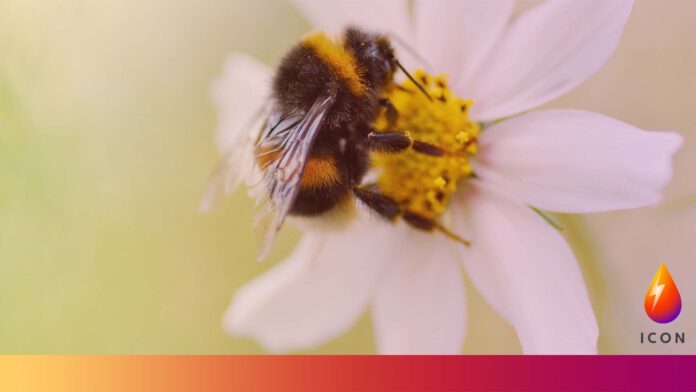
For many people, a lack of space is often the main reason for not creating wildlife friendly habitats in their gardens.
However, researchers at the University of Sussex, with the help of citizen scientists across the UK, have shown that even a space of just 4m2 is enough to provide a rich habitat for pollinators and support biodiversity.
Researchers Janine Griffiths-Lee, Dr Beth Nicholls and Professor Dave Goulson worked with citizen scientists across the UK over a period of two years to investigate the effectiveness of sown wildflower ‘mini-meadows’ in gardens and allotments, using commercially available seed mixes.
Insect-sampling was conducted during May and August with insect identification by trained specialists.
The results showed that in the year following seed-sowing, mini-meadows were supporting on average 111% more bumblebees compared to control plots where no wildflowers had been sown. These resource rich habitats also attracted 87% more solitary bees, and 85% more solitary wasps.
Janine Griffiths-Lee, a PhD researcher at the University of Sussex part-funded by the CB Dennis Trust, and one of the authors of the study, commented: “This project shows that mini-meadows can really help pollinators, increasing both insect abundance and diversity in the garden.
“In England and Wales, 97% of wildflower meadows were lost by 1984. There is an opportunity to support pollinator populations in urban landscapes, as well as more traditional rural ones, and we’ve proven that you don’t need a lot of space in order to do this.
“Small-scale flower patches can attract more beneficial insects in fragmented urban landscapes, supporting biodiversity and pollination services.”
The participants of the study were split into three groups – one used a commercially available ‘meadow mix’, another used a formulated mix based on existing literature on pollinator foraging preferences, and the last group were the control, with no additional wildflowers.
Interestingly, mix 1 attracted more solitary bees and bumblebees, whereas mix 2 attracted more solitary wasps. The researchers believe that the higher abundance of solitary wasps and bees caught amongst the mini-meadow was perhaps due to their shorter foraging ranges.
Dr Beth Nicholls, research fellow at the University of Sussex and co-author of the paper, added: “As we approach No Mow May, we’re hopeful that our research will provide individuals and local councils with food for thought.
“Even little patches of flowers, whether in gardens, allotments or roadside verges, can give measurable benefits to insects and pollinators.”
Prof Dave Goulson added: “The big picture is that insects are in decline, and need our help. This new study shows that you don’t need much space to do your bit.
“If most of the UK’s 22 million private gardens had a mini-meadow like this, it would really make a difference.”
‘Sown mini-meadows increase pollinator diversity in gardens’ can be found in the Journal of Insect Conservation.